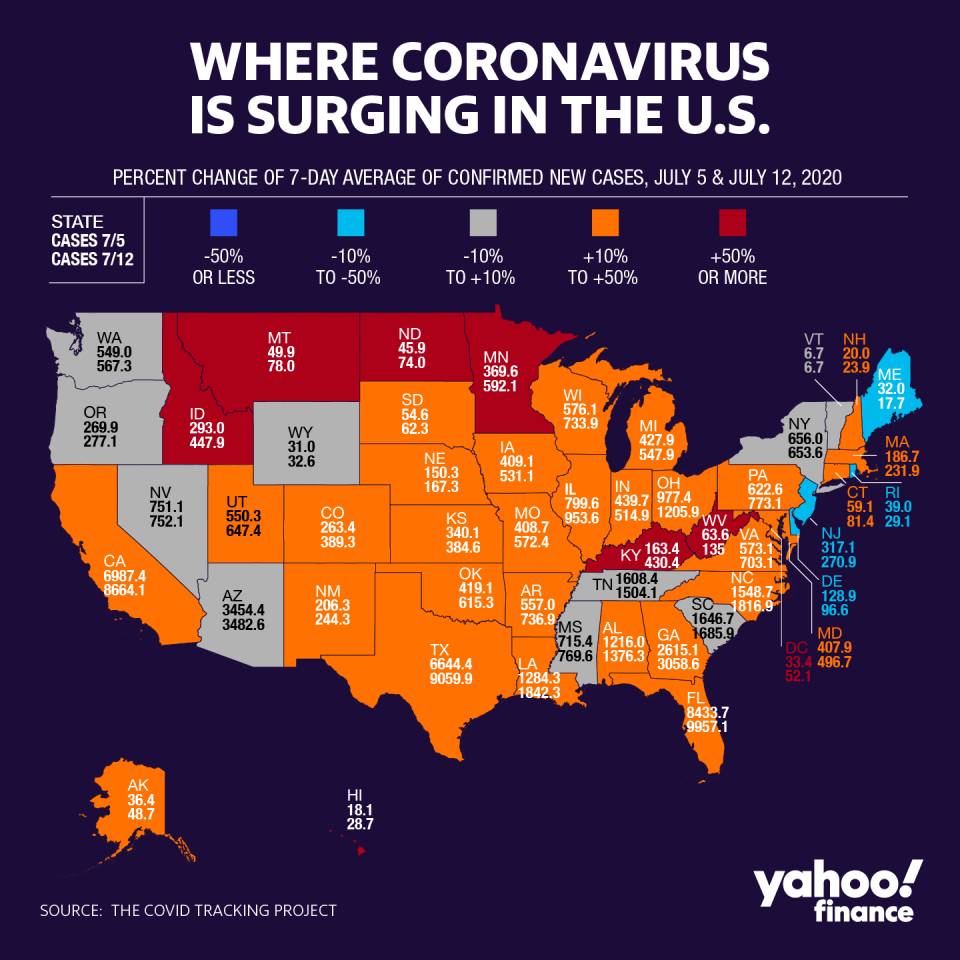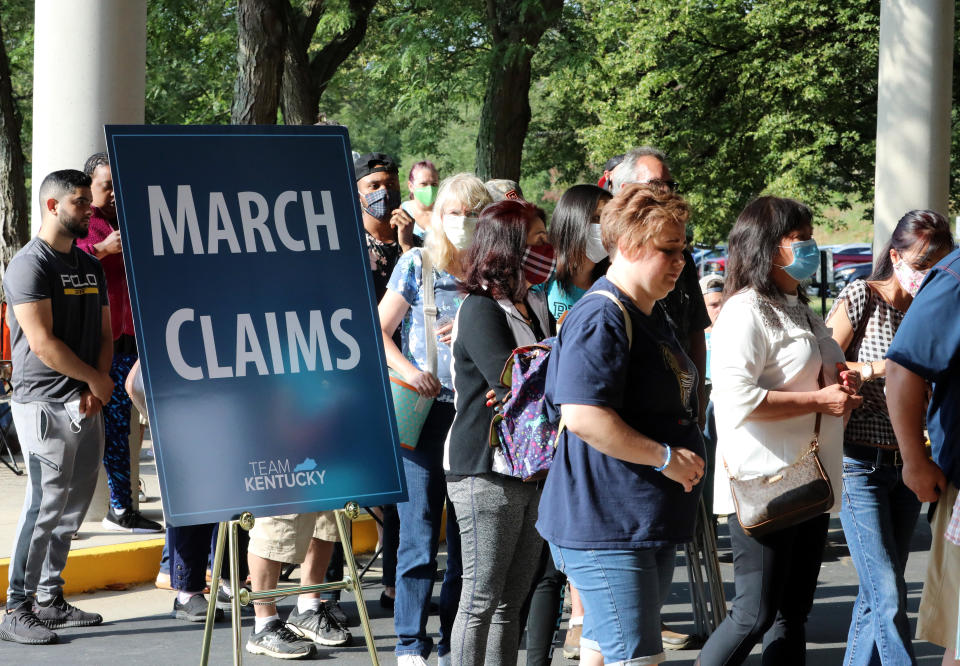Coronavirus stimulus: States extend unemployment benefits as Congress debates extension
Individual U.S. states are acting to extend unemployment benefits as Congress debates whether or not to extend the extra $600 weekly unemployment benefits.
“States are taking the lead because of the concerns about the lack of action by the federal government,” Gbenga Ajilore, senior economist at the Center for American Progress, a non-profit for public policy research and advocacy, told Yahoo Money. “This is something that we've seen throughout this pandemic that the states can't rely on the federal government to help out anymore.”
Read more: Do you have to pay taxes on unemployment benefits?
States can generally offer up to 39 weeks of unemployment benefits amid the coronavirus pandemic and 26 weeks of state unemployment, plus 13 weeks of federal Pandemic Emergency Unemployment Compensation (PEUC). On top of that, all states except South Dakota have enacted Extended Benefits (EB).

Extended Benefits (EB) is a federally-funded program that extends those benefits further, usually when the state's unemployment hits 5.9%. EB usually lasts 13 weeks, though some states may offer up to 20 in a “High Unemployment Period” for a maximum of 59 weeks. (People can claim EB only after they have exhausted the approximately 26 weeks of unemployment plus the 13 additional weeks given under the CARES Act.)
Read more: Coronavirus: How to find a job after a layoff
“States have the option to provide more weeks conditional on the unemployment rate being high enough,” Ajilore said. “My assumption would be that states are concerned about depleting their trust fund and thus would opt for fewer weeks.”
Some states — including Ohio, New Jersey, and California — enacted extensions of 20 weeks.

‘A lot of states feel the need to go on their own’
Under the Coronavirus Aid, Relief, and Economic Security (CARES) Act, the federal government will provide an additional $600 of weekly benefits in all states through July. (The 13-week PEUC claims extension, also provided by the CARES Act, will not expire at the end of the month.)
“A lot of states are recognizing that this deadline may pass, and that goes away and so they know how much has helped people out,” Ajilore said. “And so they want to find a way to continue that.”

The CARES Act also allows millions of Americans who are not usually eligible for unemployment benefits — such as independent contractors and self-employed workers — to claim benefits for up to 39 weeks through the Pandemic Unemployment Assistance (PUA).
States have the ability to extend PUA to 46 weeks. New Jersey, Texas, California, and Ohio are some of the states that have enacted the extension so far.
“New Jersey went from being at almost full employment last winter to double-digit unemployment almost overnight,” Labor Commissioner Robert Asaro-Angelo said in a statement. “These triggers are put in place for just such eventualities — so that claimants have access to an income safety net for an extended period of time during times of high unemployment.”
Read more: Coronavirus and bankruptcy: What you need to know

Overall, while the extended weeks of unemployment benefits are federally funded, unemployment insurance is largely state-based and certain states have been better and more proactive about helping the unemployed.
“There hasn't really been a national strategy in terms of tackling this pandemic so a lot of states feel the need to go on their own,” Ajilore noted. “It doesn't surprise me that there are a few states that are taking the lead in terms of trying to extend more with an understanding that this pandemic is not going to end soon.”
One way states can keep employees on payrolls is work-share programs. In a work-share program, employers choose to cut hours instead of laying off workers by setting up a formal workshop program with the state. The program provides those employees access to their unemployment benefits while keeping them on the payroll.

And while 27 states, along with Washington D.C., have work-share infrastructure, few use it extensively. Michigan is one of the few states to have taken advantage of this program, according to Ajilore.
European and other countries have implemented similar programs and kept their unemployment rate considerably lower than the U.S.
Denitsa is a writer for Yahoo Finance and Cashay, a new personal finance website. Follow her on Twitter @denitsa_tsekova.
Read more:
Rich Americans' pullback in spending is hurting the economic recovery
Read more personal finance information, news, and tips on Cashay
Follow Yahoo Finance on Twitter, Facebook, Instagram, Flipboard, SmartNews, LinkedIn, YouTube, and Reddit.

 money
money 
